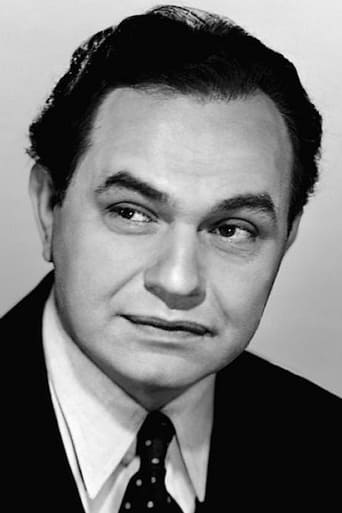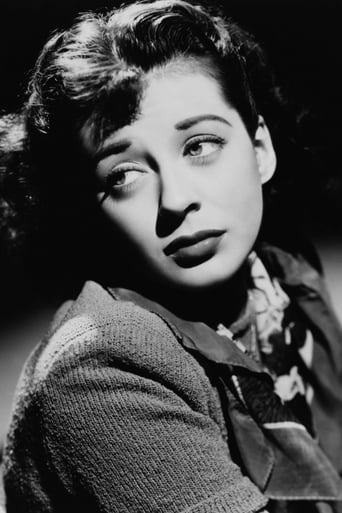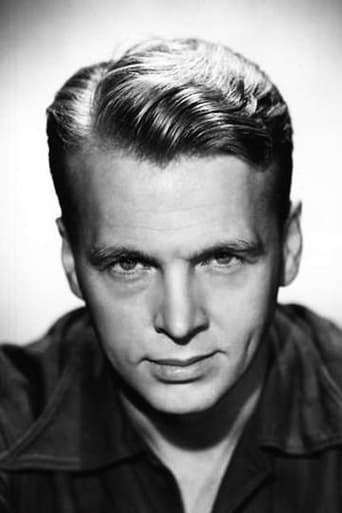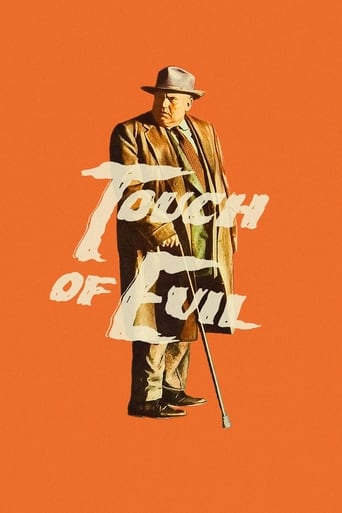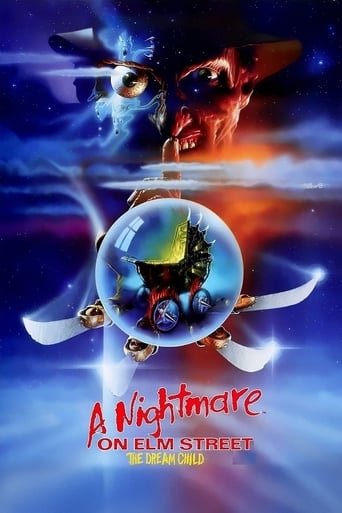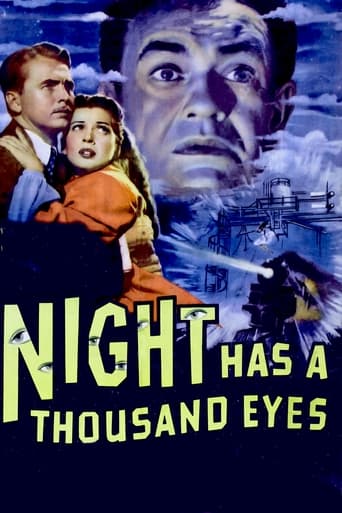
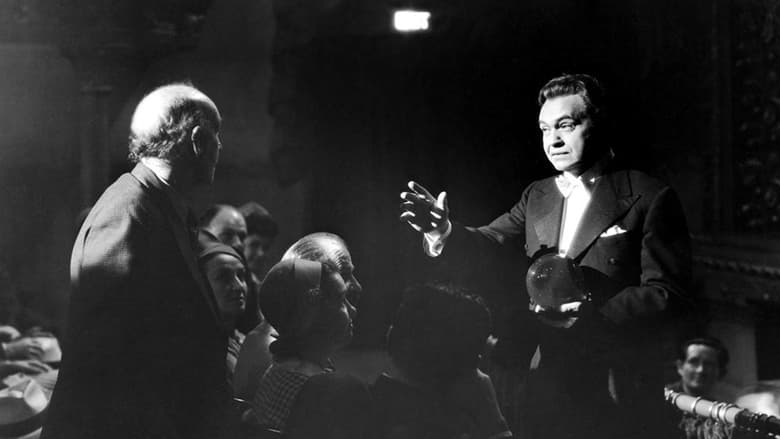
Night Has a Thousand Eyes (1948)
When heiress Jean Courtland attempts suicide, her fiancée Elliott Carson probes her relationship with John Triton. In flashback, we see how stage mentalist Triton starts having terrifying flashes of true precognition. Now years later, he desperately tries to prevent tragedies in the Courtland family.
Watch Trailer
Cast
Similar titles
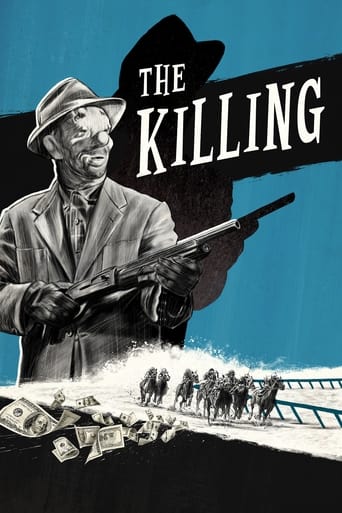
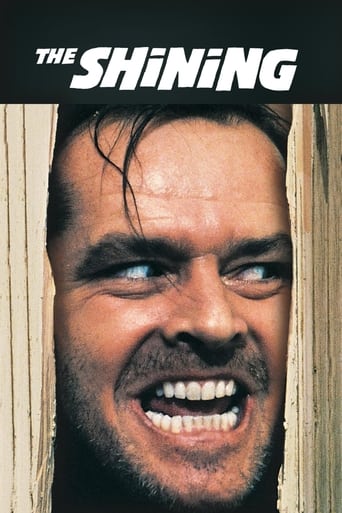

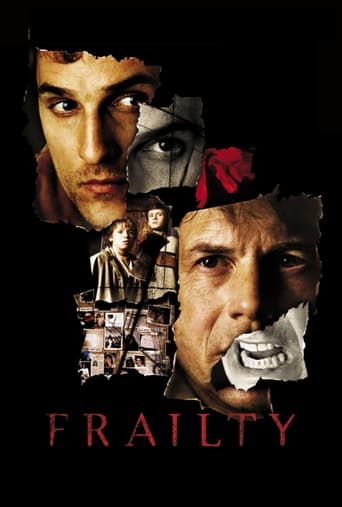
Reviews
Such a frustrating disappointment
Plenty to Like, Plenty to Dislike
While it doesn't offer any answers, it both thrills and makes you think.
The plot isn't so bad, but the pace of storytelling is too slow which makes people bored. Certain moments are so obvious and unnecessary for the main plot. I would've fast-forwarded those moments if it was an online streaming. The ending looks like implying a sequel, not sure if this movie will get one
This decidedly creepy screen adaptation of Cornell Woolrich's novel of the same name is offbeat and gripping right from the start. Its story of a man who's troubled by his ability to foresee the future, becomes increasingly distressing as his unwanted talent gradually destroys his life and fills him with guilt about the tragedies that he sees in his "visions". Sadly, because his visions can't be controlled and no-one can change the hand of fate, there seems to be no way out of this man's personal Hell.Suicidal heiress Jean Courtland (Gail Russell) is standing on a bridge, poised to leap in front of an on-coming train, when her fiancé Elliott Carson (John Lund) suddenly appears and prevents her from jumping. When the young couple retreat to a nearby café and meet up with the man who'd saved Jean's life by alerting Elliott to the danger that she was in, their conversation proves to be very enlightening.John Triton (Edward G Robinson) explains that twenty years earlier, he and Jean's parents, Whitney (Jerome Cowan) and Jenny (Virginia Bruce), had been partners in a touring vaudeville act in which he was a phoney mind-reader, his best friend Whitney played the piano and his fiancée Jenny was the glamorous assistant. During this period, John started to have visions that proved to be accurate predictions of future events and Whitney capitalised on this by using John's tips to prosper through gambling and playing the stock market. One night when they were all on stage together, John became terribly upset and had to bring the performance to a sudden end when he had a vision of Jenny, after their marriage, dying in childbirth. In order to prevent this premonition from becoming a reality and without telling his partners what he'd "seen", he decided to leave the act and simply disappear (but not before giving Whitney some advice about making an investment in an oil business).John became a recluse and after some time had passed with no word from him, Whitney and Jenny married but Jenny subsequently died in childbirth. John went on to live a very quiet and lonely life in the Bunker Hill district of L.A. until a short time before Jean's suicide attempt, when he contacted her because he'd had a vision of Whitney dying in a plane crash. Jean's efforts to contact her father proved unsuccessful and as predicted, he perished in the wreckage of his plane.Elliott is very sceptical and thinks that John's a charlatan working on some sort of scam to get his hands on Jean's money but Jean trusts him implicitly. This is because she remembers how fondly her father had spoken of his best friend and his impressive psychic powers. John then becomes distraught after having a vision in which he foresees Jean's death and despite the apparent futility of the idea, becomes absolutely determined to prevent her demise.This moody thriller has a strange mesmeric quality and a level of tension that grows steadily with each new development. Its ominous atmosphere is beautifully complemented by Victor Young's effective score and John F Seitz's top class cinematography, but it's the knockout performance by Edward G Robinson that provides the real icing on the cake. His tragic character sums up his predicament at one point when he says that "this gift which I never asked for and don't understand has brought me only unhappiness". Having lost the love of his life and his best friend because of his gift and being condemned to a life of isolation and loneliness , he then gets openly disrespected by most people who think he's a fraud or a criminal and knows that all he faces in the future is the unending torment that he'll inevitably experience until his own demise.What Robinson captures so brilliantly is John Triton's innate decency as well as the melancholia that has understandably engulfed him as a result of his experiences. The supporting cast is also consistently good with Gail Russell standing out as a great choice for her role because her appearance and deportment make her privileged but troubled character so convincing.
Edward G. Robinson was not fond of this film. In his posthumous unfinished memoirs he said of Night Has A Thousand Eyes he said it was pure hokum. Robinson did this one as Burt Lancaster used to say 'for the poke'.I don't think it was all that bad, but definitely could have used room for improvement. Sweethearts John Lund and Gail Russell seek out Robinson who was an old friend of her parents. Back in the day all three were involved in a phony mind reading act when Robinson started showing psychic powers for real. A tip on a horse and another tip on a burgeoning oil field made Russell's father Jerome Cowan a rich man. Robinson who is scared of these new and unwanted abilities just leaves it all to go into obscurity leaving Cowan to marry Virginia Bruce who dies in childbirth bearing Russell as Robinson predicted.Now however Russell is feeling strangely threatened and seeks out Robinson. After this however the plot gets truly muddled.The first half of the film is the best and the second half bad, so much so you would think it was two different films spliced together. Some mediocre directing is compensated for by the performances of Robinson and Russell. For Gail it was more of the same as she did in The Uninvited.Fans of both of these players will probably like it more than Edward G. Robinson apparently did.
Night Has a Thousand Eyes is directed by John Farrow and adapted to screenplay by Barre Lyndon and Jonathan Latimer from the novel of the same name written by Cornell Woolrich. It stars Edward G. Robinson, Gail Russell, John Lund, Virginia Bruce, William Demarest, Richard Webb and Jerome Cowan. Music is scored by Victor Young and cinematography by John F. Seitz.John Triton (Robinson) is a nightclub fortune teller who suddenly finds he really does posses psychic ability. As his predictions become more bleaker, Triton struggles with what was once a gift but now is very much a curse.During a visually sumptuous beginning to the film, a girl is saved from suicide, it's an attention grabbing start and sets the tone for what will follow. Mood and strangulated atmosphere born out by photographic styles, craft of acting and Young's spine tingling score are the keys to the film's success, with the pervading sense of doom ensuring the narrative never falls into mawkish hell. It's a film that shares thematic similarities with a 1934 Claude Rains picture titled The Clairvoyant, only here we enter noir territory for Triton's cursed journey, where as the Rains movie was ultimately leading us to the savage idiocy of mob justice.Farrow's (The Big Clock/Where Danger Lives) film falls into a small quasi supernatural group of black and whites that are formed around a carnival/psychic act. It's a situation for film that film noir makers sadly didn't explore more often, making the likes of Night Has a Thousand Eyes, Nightmare Alley and The Spiritualist little treasures to be cherished. Farrow gets as much suspense out of the story as he can, of which he is helped enormously by the great work of Robinson. At a time when the HUAC was breathing down his neck, Robinson turns in a definitive portrayal of a man caught in a trap, his fate sealed. His face haunted and haggard, his spoken words sorrowful and hushed, Robinson is simply terrific.The world of prognostication gets a film noir make-over, death under the stars indeed. 8/10
William Irish aka George Hopley aka Cornell Woolrich (the latter appearing in the cast and credits,his real name) loved the subject so much that not only he wrote a short story but he also wrote a whole novel ,with the same characters .People complained that John Farrow sacrificed psychology to the plot.But it was not Woolrich's forte.His characters elude him,they are puppets ,not in his hands ,but in the hands of fate .This is his most revealing book:he did believe in the power of the stars (one of his short stories,one of his most desperate was called "no moon ,no stars"),he did believe that man's destiny is written before he lives and that he can't change it;the users who know about his miserable life remember that he spent his whole existence in a hotel room;he was gay but the only love he got was from his mother;he ended his life a disabled man ,diabetes leading to gangrene .John Farrow modified the book ,but he remained faithful to Woolrich's spirit;in the novel,it's the father of the girl who has got to die in a lion's jaws .Read it,even if you watched the movie,cause Woolrich's sense of tragedy has no equal in the Roman Noir.Only the ending is a bit embarrassing ,being somewhat contrived and adding a wrong track which weakened the intense emotion :too bad they did not keep the final lines between the girl and her friend.The opening scene on the railroad track can rival with the best films Noirs of the forties/early fifties,like those of Robert Siodmak (who took Woolrich's "phantom lady" to the screen) and Mitchell Leisen (whose "no man of her own" is a thousand times better than the pitiful FRench attempt called "J'Ai Epousé Une Ombre" ).Gail Russel,a relatively obscure actress has wonderful eyes which the director films in the scene in the car as bright as two stars in the night.The-man-who-can-predict-future was a secondary character in the book ,but Edward G.Robinson made it a winner;he added a guilt feeling ,which overwhelmed him and his performance was extraordinary all along the way;this part was tailor -made for him:remember Lang's "woman in the window" ,Duvivier' s "flesh and fantasy" or Siodmak's "the strange affair of Uncle Harry",all tormented characters who have perhaps done nothing and who are feeling guilt.A lot of bizarre details (the cushion,the gun which doesn't shoot,the flower under the shoe,the little boy on the street ,the strange music hall -a scene not unlike the contemporary adventure of Tintin:"Les Sept Boules DE Cristal") create a heavy atmosphere devoid of any providence.
